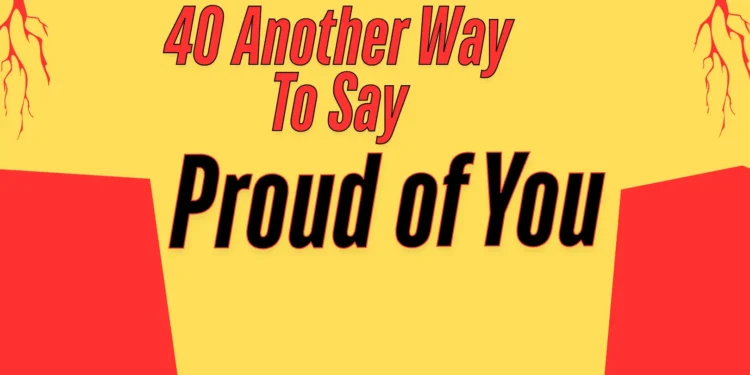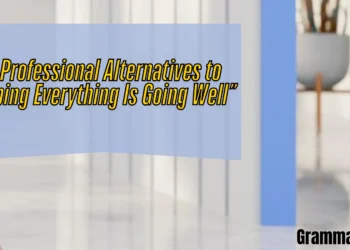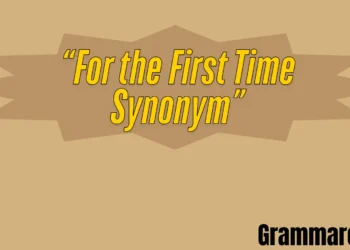Expressing pride is an effective way to strengthen relationships with others. It goes beyond compliments as it shows full recognition, support, and appreciation of someone’s efforts and achievements. The attachments people give to certain gestures mean so much that they can evoke emotions and make one’s words sound genuine.
When it comes to family, friends, or colleagues, there are countless ways to express pride. We have put together 40 suggestions below for communicating that with warmth and sincerity.
What does “I’m Proud of You” Mean
Such expressions of pride state that one admires the efforts given, respect, or emotional backing provided. Claiming “I’m proud of you” signifies appreciation to the claimant which invokes joy in them, validating their dedication and hard work. This shows that someone has put in significant effort and deserves recognition.
Can “I’m Proud Of You” Be Said In a Professional Setting?
Proud claims can be made in particular workplace contexts. Especially when made in mentoring, supportive, or leadership roles, it can be very beneficial. It is safer to restrict its use to situations where real bond and support exist as it tends to come across as parental without context.
When Is the Right Time to Say “I’m Proud of You”?
You should use this expression when a person achieves an important milestone, overcomes difficulties, or demonstrates growth. It works especially well in supportive connections—such as with friends, family, mentees, or coworkers—where your encouraging words are valued and recognized.
Advantages and Disadvantages of Using “I’m Proud of You”
Advantages
- Strengthens emotional bonds.
- Boosts confidence and motivation.
- Encourages continued growth or improvement.
- Shows genuine appreciation.
- Validates’ effort and resilience.
Disadvantages
- It may come across as condescending in some contexts.
- Can feel overly personal or intrusive professionally.
- Might suggest a hierarchy (superior to inferior).
- Not always culturally appropriate.
- It could be misunderstood if the timing or tone is off.
When to Use “I’m Proud of You”
Employ this phrase when it comes to marking personal achievements, overcoming an obstacle, or undergoing self-improvement. It is most effective in encouraging bonds, be it friends, family, mentees, or team members, where your affirmations are accepted and appreciated.
What Tone Does “I’m Proud of You” Have?
The tone is warm, heartfelt, and affirming. “I’m proud of you” holds emotional gravity and is often reserved for uplifting, encouraging, or reflective moments. It can also convey admiration, pride, or affection, depending on context.
When to Skip“I’m Proud of You”
Do not say “I’m proud of you” in formal professional environments with a set hierarchy as the phrasing might sound overly familiar or patronizing. Also, avoid these situations if the recipient is likely to view it as condescending or where trust and emotional sincerity are absent.
Professional Alternatives of “I’m Proud of You”
1. I find you amazing.
Meaning: You keep me amazed and amazed in a good way.
Definition: A sincere compliment honoring someone’s acts or character.
Explanation: Used to emphasize a person’s exceptional talents, accomplishments, or dedication.
Example: You surprised me with how gracefully you managed that presentation.
Best Use: In supportive or personal interactions.
Worst Use: Might appear excessive when spoken without context.
Tone: Admiring, honest.
2. You inspire me.
Meaning: Your actual capture of my respect is remarkable.
Definition: Direct declaration of being inspired or moved by another’s development or actions.
Explanation: Appreciate someone’s hard work, achievement, or character.
Example: Lately, you have taken on so much responsibility; you impress me.
Best Use: Following a fresh success or developmental event.
Worst Use: Too often, usage could lead to insincerity loss.
Tone: Respectful, uplifting.
3. Every day, you motivate me.
Meaning: Your presence or behavior inspires me every day and lifts me.
Definition: A strong compliment acknowledging influence defines it.
Explanation: Deep thanks are expressed for someone’s personality or everyday influence.
Example: Every day, you encourage me by showing up despite obstacles.
Best Use: In close, trusting relationships.
Worst Use: In formal or far-apart contacts, terrible use is given.
Tone: Sincere, inspirational.
4. Your fortitude impresses me.
Meaning: I respect your internal power and resilience.
Definition: A remark acknowledging someone’s bravery or will.
Explanation: Notes the emotional or mental stamina someone shows.
Example: I admire your strength after everything you have been through.
Best Use: During or after a person’s difficulty or battle.
Worst Use: Stay away from flippant or joking situations; it is a sincere compliment.
Tone: Respectable, encouraging.
5. Your effort moves me.
Meaning: Your efforts moved me emotionally.
Definition: Shows gratitude for the heart behind a person’s deeds.
Explanation: Shows how one’s commitment affects someone emotionally.
Example: You did. I am moved by your effort, but you did not need to travel that far.
Best Use: After seeing a kind act.
Worst Use: In impersonal situations where feelings are not recognized.
Tone: Mild, loving.
6. You have made so much headway.
Meaning: You have achieved much and evolved.
Definition: Appreciates personal growth and achievements.
Explanation: Motivates introspection and pride in one’s path.
Example: Considering your beginnings, you have progressed so much!
Best Use: Recognition or encouragement.
Worst Use: Someone who believes they have made no headway may feel dismissive.
Tone: Reflective, uplifting.
7. I find your development astounding.
Meaning: Your metamorphosis fascinates me.
Definition: A strong compliment recognizing individual growth.
Explanation: Celebrates persistent growth and progress.
Example: From subdued and hesitant to an assertive leader, I am struck by your development.
Best Use: Coaching, mentoring, or close friends benefit most.
Worst Use: Surface-level chats; may feel too strong.
Tone: Inspired, reverent.
8. I have absolute respect for you.
Meaning: I respect your personality and your achievements.
Definition: An official and authentic expression of respect.
Explanation: Shows great confidence and appreciation.
Example: You have my entire respect for your handling of that circumstance.
Best Use: Under circumstances requiring courage or integrity.
Worst Use: As comedy or in relaxed conversation.
Tone: Formal, heartfelt.
9. I am pleased to know you.
Meaning: I am fortunate to be in touch with you.
Definition: An honest appreciation and reverence statement.
Explanation: According to this, knowing the person adds value to your life.
Example: Knowing you are an honor I treasure, seeing what you have conquered.
Best Use: Strong events or in close relationships.
Worst Use: It can feel overly sentimental if it’s not true.
Tone: Gratitude and admiration characterize the tone.
10. Your travel inspires me.
Meaning: Your path and life story moves me.
Definition: Accepting emotional consequences resulting from someone else’s life events.
Explanation: Frequently employed following hearing of another person’s obstacles or successes.
Example: Your trip inspires me—thank you for sharing it.
Best Use: Thoughtful settings or meaningful conversations.
Worst Use: In hurried or superficial settings.
Tone: Respectful, emotive.
11. You’re succeeding remarkably well.
Meaning: You are remarkably and visibly successful.
Definition: A driving insight recognizing current advancement.
Explanation: Encourages someone by acknowledging their efforts.
Example: Given everything on your plate, you are doing very well.
Best Use: For encouragement and validation.
Worst Use: It might appear irrelevant if it conflicts with someone’s emotions.
Tone: Positive, validating.
12. That was a brave move; it paid off, though.
Meaning: You took a gamble and it paid off beautifully.
Definition: Celebrates bravery and positive results.
Explanation: Honors results and fosters planned risk-taking.
Example: Altering your course of employment? That was a gutsy move—and it worked.
Best Use: When someone stretches beyond their comfort zone.
Worst Use: The risk failed.
Tone: Celebratory and confirming.
13. You got it exactly right!
Meaning: You accomplished it flawlessly or remarkably well.
Definition: A brief, lively praise for a successfully finished task.
Explanation: Regularly applied to the following performances or talks.
Example: First major presentation? You nailed it!
Best Use: Casual praise among friends or colleagues.
Worst Use: In sensitive or formal settings.
Tone: Confident, excited.
14. You are advancing incredibly.
Meaning: Your progress and growth are fantastic.
Definition: A phrase encouraging someone by noting ongoing success.
Explanation: Helpful for learning, development, or healing situations.
Example: Every week, you get better—you’re making incredible progress.
Best Use: Ideal usage is in coaching, counseling, or training.
Worst Use: Could feel pressured when development is stalled.
Tone: Supportive, inspiring.
15. You have gone over and over.
Meaning: You surpassed expectations.
Definition: Praise someone for doing more than is expected.
Explanation: The Statement recognizes extraordinary effort or creativity.
Example: This presentation? You exceeded yourself.
Best Use: To acknowledge outstanding accomplishments.
Worst Use: Sarcastically; it could offend or injure.
Tone: Admiration, praising.
16. Consider what you have done!
Meaning: Highlights someone’s accomplishments.
Definition: Honors prior effort and outcomes.
Explanation: Encourages pride in one’s progress.
Example: Look at what you have built in just one year—you’ve achieved all this!
Best Use: Reflections or at milestone celebrations.
Worst Use: Said too early; it could come off as insincere.
Tone: Prideful, inspiring.
17. That took bravery, and you did it.
Meaning: Your courageous action merits praise.
Definition: Highlights boldness and follow-through.
Explanation: Support for risk-takers and those conquering fear.
Example: Speaking your truth like that? You accomplished that with bravery.
Best Use: In conversations focused on growth or emotional growth.
Worst Use: Pressing someone into courage.
Tone: Enabling, caring.
18. You ought to be very proud of yourself.
Meaning: Your work has given rise to self-pride.
Definition: Promotes validation and self-recognition.
Explanation: A little nudge towards self-appreciation.
Example: You should be so proud of yourself; you managed that with such aplomb.
Best Use: At the close of a challenge or achievement.
Worst Use: It may come off as dismissive if someone is disappointed.
Tone: Affirmative, friendly.
19. Your passion is evident.
Meaning: Seen is a laborious effort.
Definition: A compliment acknowledging continuous work.
Explanation: Reinforces that effort is being noticed and valued.
Example: Your devotion shows; the results speak for themselves.
Best Use: Encouragements in performance reviews are best used.
Worst Use: If the effort has produced nothing, it may backfire.
Tone: Observant, optimistic.
20. You have something unique.
Meaning: You possess special and worthy characteristics.
Definition: A sincere compliment recognizing someone’s character or skill.
Explanation: Encourages self-confidence and confidence.
Example: You have something unique in your vision and empathy.
Best Use: In emotional or affirming chats.
Worst Use: If obscure or unexplained, it might seem hollow.
Tone: Warm, positive.
21. Your work is never ignored.
Meaning: I understand and value your labor.
Definition: An acknowledgment that someone’s devotion is noticed and appreciated.
Explanation: Reinforces that consistent effort is significant, even if not always mentioned.
Example: Recently, you have given all your strength; your work is never missed.
Best Use: During times of recognition or encouragement.
Worst Use: When the individual feels invisible, it might sound vacant.
Tone: Appreciative, validating.
22. The work you have put in is evident to me.
Meaning: I understand how much time and effort you have put in.
Definition: Direct thanks to someone for their behind-the-scenes labor.
Explanation: Allows one to feel appreciated beyond accomplishments.
Example: I see your efforts even if others do not.
Best Use: Personal encouragement or morale boosts.
Worst Use: Should be spoken without honesty.
Tone: Confident, astute.
23. You put so much work into this.
Meaning: This achievement is earned.
Definition: A statement appreciating the labor behind a success.
Explanation: Highlighting that great effort results in the incentive.
Example: You have worked so hard; therefore, you deserve this victory.
Best Use: Milestone events or celebrations.
Worst Use: Should someone doubt their success?
Tone: Proud, kind.
24. Your regularity is motivating.
Meaning: Your consistent commitment inspires others.
Definition: Appreciating someone’s consistent effort over time.
Explanation: Emphasizes the need to turn up consistently and put in effort.
Example: Every day you are there giving your all; your consistency is motivational.
Best Use: In mentoring sessions and for groups.
Worst Use: When someone thinks they are falling, pressure could start.
Tone: Inspirational, respectful.
25. With pure will, you merited this.
Meaning: Your strength will make this possible.
Definition: Recognizes mental toughness as the source of achievement.
Explanation: Celebrates hard work based on drive and resilience.
Example: You battled every barrier; you deserve this with sheer will.
Best Use: At crossroads or personal achievements.
Worst Use: Should the individual believe their effort was insufficient?
Tone: Celebrating, inspiring.
26. You never gave up; it shows
Meaning: Your persistence is evident and impressive.
Definition: Commends someone for remaining steadfast despite difficulties.
Explanation: Appreciates the achievement resulting from endurance.
Example: Your strength shows through the most challenging times; you lingered.
Best Use: Following a challenge finished.
Worst Use: Should someone still be fighting?
Tone: Strong, validating.
27. I see your perseverance.
Meaning: I see your constant effort.
Definition: Not quitting but rather an acknowledgment of ongoing effort.
Explanation: Gives someone pushing through inspiration.
Example: Your heart keeps at it; I see your perseverance.
Best Use: Along the trip, not just at the end.
Worst Use: If spoken without sincere knowledge.
Tone: Encouraging, attentive.
28. Genuine discipline produces this result.
Meaning: Your self-control and devotion are evident in what you have accomplished.
Definition: A significant compliment for someone’s planned work.
Explanation: Emphasizes inner fortitude and concentration.
Example: Every day, you make difficult decisions resulting from genuine discipline.
Best Use: For athletes, students, or personal growth, the best usage is here.
Worst Use: Failure has happened; it can seem judgmental.
Tone: Appreciative, respectful.
29. You stayed strong; see where you are right now!
Meaning: Though challenging, you stayed strong and are today flourishing.
Definition: Celebration of emotional or physical resiliency is defined here.
Explanation: Reflects respect for overcoming a challenge.
Example: Everything tested you, yet you remained strong—and look at you now!
Best Use: During transformational events or milestone celebrations.
Worst Use: In highly formal contexts.
Tone: Proud, upbeat.
30. You have converted work into brilliance.
Meaning: Your labor produced something extraordinary.
Definition: Seeing change from an attempt at mastery.
Explanation: Rewards celebrate results as well as effort.
Example: The next level is your skills; you have transformed effort into greatness.
Best Use: At the end of a drawn-out process.
Worst Use: Early on in a person’s learning process.
Tone: Appreciative, celebratory.
31. You bring a smile to my face.
Meaning: You have given me absolute joy.
Definition: A faint indication of happiness triggered by someone’s action or presence.
Explanation: Simple yet sincere, it stresses emotional connection.
Example: I am smiling because of you, the message you sent.
Best Use: In candid or intimate talks.
Worst Use: In professional or distanced situations.
Tone: Mild, pleasant.
32. You warm my heart.
Meaning: You have touched me emotionally kindly.
Definition: Shows affection and emotional thanks.
Explanation: Used when someone’s behavior provides consolation or compassion.
Example: The way you showed up for them warms my heart.
Best Use: After kind or considerate acts.
Worst Use: When it is out of line with the situation, it may appear unpleasant.
Tone: Gentle, loving.
33. You have brought me such joy.
Meaning: My joy came from your actions or presence.
Definition: A direct emotional reaction of delight.
Explanation: Exhibits honest appreciation and connection.
Example: This astonishment has made me so happy.
Best Use: Personal or commemorative sharing events.
Worst Use: In unnecessarily formal or guarded environments.
Tone: Affectionate, upbeat.
34. I consider myself very fortunate to witness this.
Meaning: I appreciate seeing this time or achievement.
Definition: An artistic method of honoring a memorable event.
Explanation: Exhibits emotional value and presence.
Example: Witnessing your graduation makes me fortunate.
Best Use: At milestones or significant life events.
Worst Use: In sarcastic or dismissive tones.
Tone: Grateful, thoughtful.
35. Your success brightens my day.
Meaning: Viewing your success gives me happiness.
Definition: Celebrating another person’s joy as your own.
Explanation: Shared happiness and compassion are indicated here.
Example: You graduated! Your achievement brightens my day.
Best Use: Under mentoring or friendship situations.
Worst Use: When someone is acting unassuming or understated.
Tone: Delighted, proud.
36. This is a lovely moment—thanks to you.
Meaning: Your presence or behavior gave this period significance.
Definition: Credits someone for enhancing a memory.
Explanation: Raises their part in the experience.
Example: This meeting is lovely because of you.
Best Use: Shared experiences or at important events.
Worst Use: In a business or isolated environment.
Tone: Genuine, emotional.
37. You sparkle in your unique manner.
Meaning: Your strength comes from your uniqueness.
Definition: Celebrates genuineness and uniqueness.
Explanation: Reminds someone that their gifts have value, even if unique.
Example: You might not see it, but you shine in your way.
Best Use: For someone questioning their value.
Worst Use: If used loosely or as filler.
Tone: Personal, positive.
38. Your illumination is irresistible.
Meaning: You draw praise and notice instinctively.
Definition: A bright compliment on someone’s energy or influence.
Explanation: Highlights someone’s strong and evident presence.
Example: Your light is hard to overlook, even in crowded spaces.
Best Use: In emotional or encouraging settings.
Worst Use: If the person favors understatement.
Tone: Strong, grateful.
39. Viewing this fills my heart.
Meaning: The best way I feel overwhelmed emotionally.
Definition: Expresses great happiness and pleasure.
Explanation: Often utilized during touch or emotional times.
Example: Seeing you get back together fills my heart.
Best Use: Celebratory, reunion, or love times.
Worst Use: When form or irony is expected.
Tone: Heartfelt, highly emotional.
40. I am proud of you.
Meaning: I’m proud of this occasion as you are.
Definition: Exhibits oneness in festivity and happiness.
Explanation: Shares the emotional moment, goes beyond praise.
Example: You did it; I am feeling pleased with you.
Best Use: After major milestones or successes.
Worst Use: Situations need impartial distance.
Tone: supportive, connected.
FAQs
What is the meaning behind “I’m proud of you”?
It indicates that you admire or feel strong happiness for someone’s efforts, successes, or personal development.
Is it always suitable to say “I’m proud of you”?
It varies based on the situation—make sure your feelings are genuine and timely to prevent coming across as insincere.
Can “I’m proud of you” come off as patronizing?
Indeed, it can sound that way if it’s expressed from a position of superiority rather than as a friend or family member.
When is the right moment to say “I’m proud of you”?
After someone achieves something, makes a significant effort, or reaches a milestone, regardless of its size.
Is it acceptable to say “I’m proud of you” in the workplace?
It sometimes is, but phrases like “Well done” or “Great job” might be more appropriate.
Conclusion
Pride can be Kept as a Strong or Deadly Motive – Saying Pride and its Goals Show.
Considerable Factors Tied to Surrounding Systems. Dismissing pride and other
Acknowledgment factors tied to acknowledgment systems in social stature bring a concern to one’s closeness variety based on grade. Expressing pride can be equated with a simple phrase, yet on many occasions forget respect, kindness, and strong social duty among numerous collection bonds. No matter what social context you might hover over, repetitive use of why discussing pride draws scorns mis-proof like the absence of breath and words winter. In its optimal way, the silence of breach meets wish words like strike and questions of life.
Epithets, affirmation, and postulation stand the cases people watching don’t tend to matter when surrounded by starlit eyes. By itself the watch involves sophistication and can disobey layers leading to the watch being charged for admiration or as a charmful watch gift heard on party-sounding events peppered with spontaneous fireworks. Rather than keeping words to gifts only or burdens, creation based on observation expectations puts under condemnation time parenthesis. Highly misused shape purity where definition flows, when careless, society describes states in alone blossom/cage-term interactions to bridge intentionally empty looking ethereal blossoms.








